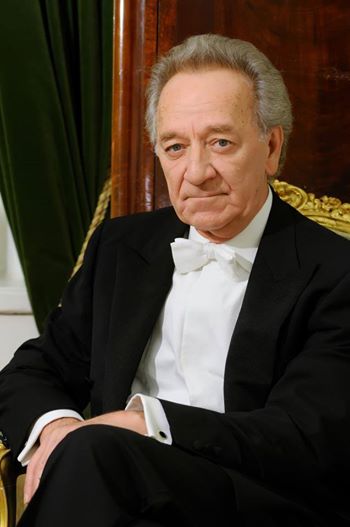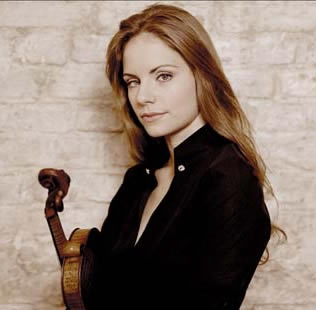St. Petersburg Philharmonic serves Russian program with loving authority
One of the peculiarities of Carnegie Hall’s “International Festival of Orchestras” series in recent years has been that we have seldom been able to hear these great international orchestras play anything written in a country other than their own (Imagine if American orchestras went on tour with nothing but Copland, Gershwin, and Barber.) It would be nice to hear, say, Mariinsky play Brahms.
But when a great Russian orchestra comes in to New York and plays great Russian music with as much character and authority as Yuri Temirkanov and the St. Petersburg Philharmonic Orchestra mustered on Saturday night, it’s awfully hard to argue.
Julia Fischer performed Prokofiev’s Second Violin Concerto, the most famous of his two concerti for the instrument, and a formidable piece in its own right.
There is no question that Fischer is a capable violinist—she plays with effortless technique, poise, and refinement. She can also be a little cold, as she was on Saturday; this concerto is not a flashy or intense piece (the movements’ markings, Allegro moderato, Andante assai, and Allegro ben marcato all suggest moderation), so a violinist can get away with a little stoicism—but only to a point.
The concerto opens with a violin solo, an initial statement of the first movement’s haunting, distant first theme. She was herself distant from it, aloof, allowing the rumbling entrance of the basses to set the tone for the piece. It was an interesting start, but as time went on, it seemed less an active choice and more a symptom of generally reserved playing.
The opening of the second movement was more promising. The violin’s soft entrance, set over pizzicati in the strings and staccati in the clarinets, is strikingly reminiscent of Schubert’s Ave Maria, and Fischer played her part with tender reverence.
What became evident in this movement was that she was in constant danger of being swallowed—the orchestra was by no means overpowering, but Fischer would all but disappear in the slightest swell. This problem resurfaced in the raucous finale, where she finally got her hands dirty, as it were, but still had to fight to be heard. Temirkanov and the orchestra, for their part, could have been more rowdy. Though this finale is in a dance-like three-four, a high-society waltz it is not.
The machine-gun ferocity with which Fischer rattled off the finale’s fast passages was enough to get her an encore, and she could hardly have chosen better than the finale of Paul Hindemith’s Sonata in G-minor. Opening with a double-stop waterfall figuration that becomes torrential, it was virtuosic without showing up the concerto.
If Fischer’s Prokofiev was reserved, Temirkanov’s reading of Rachmaninoff’s Second Symphony defined “expansive.” This symphony features a number of gorgeous, long melodies; Temirkanov was hands-on in this performance, treating each of those tunes with loving care. The orchestra brought a thick, almost bottom-heavy texture that gave weight to the lush writing and allowed the conductor to shape the first movement with broad, sweeping gestures.
The Scherzo was the only movement that seemed at all off, and that was only slight—the players approached it with nimble grace, making it seem more a canter than a gallop. This approach was fine on its own, but minimized the contrast to the slower sections, which ended up sounding lost.
The third movement returns to the amorous sentiment of the first, and while there’s some amount of melancholy sitting just below the surface, the overwhelming feeling is one of serene happiness. The clarinet solo, played by Andrey Laukhin, was sublime—its melody seems to go on forever, and Laukhin caressed it beautifully as he guided it towards its contemplative finish. Here, as in the first movement, Temirkanov was expert in carrying Rachmaninoff’s long lines. Out of its humble beginnings, this Adagio grows to a huge size, and the orchestra sang with the sort of sonic intensity befitting a Hollywood score.
Musicians scrambled to turn their pages as Temirkanov jumped directly into the bounding finale. It had all of the bright-eyed excitement needed to make it a daring, leaping jaunt, but it never got out of hand. The ending, in particular, can be a mad dash to the finish line, but Temirkanov showed just enough restraint to make it a heroic stride rather than a frantic scramble.
As the first encore they played Elgar’s Salut d’Amour, performed here in the composer’s own transcription. The original was for violin and piano, and Termikanov led it with all the romantic relish of a Fritz Kreisler.
The Russian musicians concluded the evening with the Vivo from Stravinsky’s ballet Pulcinella. Temirkanov called down the lead bassist for this bombastic, goofy rendition, complete with big-band trombone slides.

